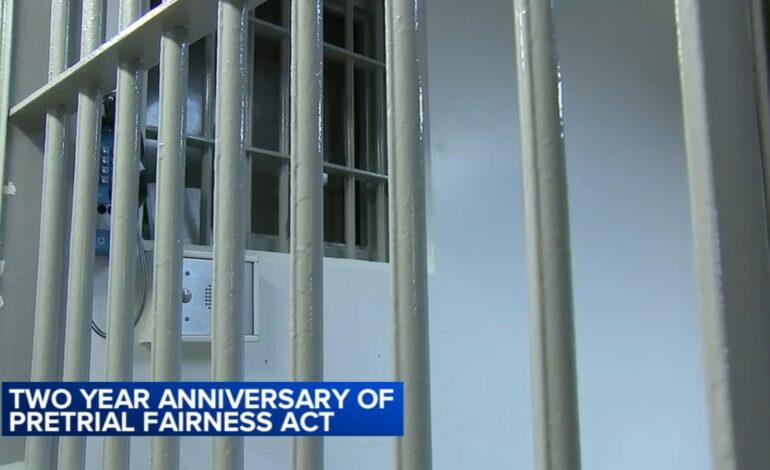Illinois Marks Two Years Without Cash Bail Amid Controversy

On March 15, 2023, Illinois commemorated two years since it became the first state to eliminate cash bail as a requirement for pre-trial release. This landmark change is rooted in the Pre-Trial Fairness Act, which aims to ensure that individuals charged with crimes are not incarcerated solely due to their inability to pay bail. However, the anniversary arrives amidst ongoing debate, with some Republican lawmakers advocating for the repeal or modification of the law.
Historically, the ability to pay bail often determined whether a person would remain in jail before their trial. According to Cook County State’s Attorney Eileen O’Neill Burke, this created an unjust system where individuals deemed a danger to the public could secure their release simply by having the financial means to do so. “If you’re a danger to the public, you shouldn’t be able to buy your way out of jail like a Jeffrey Epstein type,” she stated. “At the same time, if you’re not a danger to the public, you do not need to be incarcerated before you’re found guilty.”
Impact of the Pre-Trial Fairness Act
The Pre-Trial Fairness Act mandates that State’s Attorneys must file a petition to detain individuals, allowing a judge to make the final decision. Crimes that carry a mandatory prison sentence are eligible for detention under this law, which includes serious offenses such as robbery, sex crimes, illegal firearm possession, and domestic battery. Professor David Olson from Loyola University’s Criminal Justice Center noted that these offenses account for approximately half of all cases eligible for pre-trial detention.
In Cook County, State’s Attorney O’Neill Burke has expanded this definition to include violent crimes committed on public transport, child pornography cases, and possession of assault weapons. O’Neill Burke asserts that the law has been effective, stating, “If you look at our crime numbers, we can all agree that crime has gotten significantly better in Cook County, and that is with the SAFE-T Act. Our numbers are now in line with all other major cities.”
Opposition and Concerns
Despite these claims, many Republican lawmakers in Illinois express concerns over the law’s implications. Illinois State Representative Patrick Windhorst, the House Minority Floor Leader, argues that the ability for individuals charged with serious violent crimes to be released without cash bail poses a significant risk. “We’re seeing individuals who are charged with serious violent crimes being allowed to walk out of county jails with no cash bail, sometimes the same day they are arrested and reoffending while they are on pre-trial release,” Windhorst commented.
While there have been instances of individuals reoffending during pre-trial release, research from Loyola University’s Criminal Justice & Criminology Department indicates that such occurrences are rare. Professor Olson highlighted that prior to the enactment of the law, most individuals charged with crimes were released pre-trial, but the key difference now is that they are not required to post bail.
The ongoing debate regarding the Pre-Trial Fairness Act reflects broader discussions about criminal justice reform and public safety. As Illinois continues to navigate the implications of removing cash bail, the balance between ensuring public safety and upholding the rights of the accused remains a critical topic of discussion among lawmakers, advocates, and the community at large.






